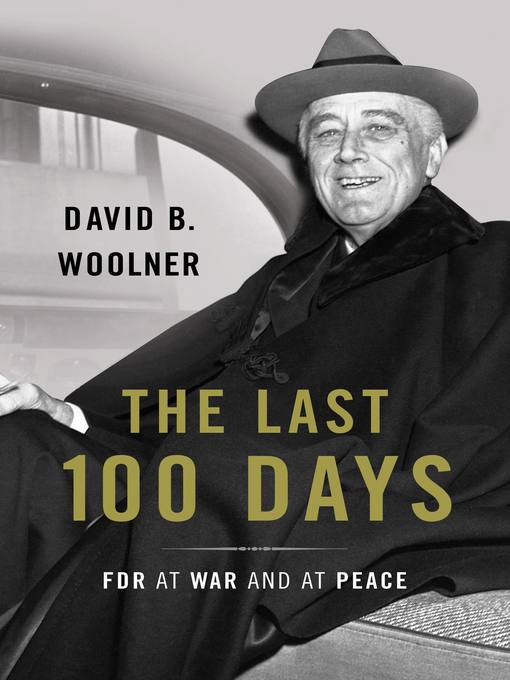
The Last 100 Days
FDR at War and at Peace
کتاب های مرتبط
- اطلاعات
- نقد و بررسی
- دیدگاه کاربران
نقد و بررسی

October 1, 2017
Franklin D. Roosevelt (1882-1945) remains one of the most popular presidents in 20th-century history. Many historians focus on the 32nd president's first 100 days, which set the standard for future administrations. Woolner (history, Marist Coll.; coeditor, Progressivism in America) is senior fellow and Hyde Park Resident Historian at the Roosevelt Institute. Here, he uses his knowledge of Roosevelt to focus on the president's last three months in office. Roosevelt saw the country through the end of the Great Depression and the trials and eventual end of World War II. The author relays how the politician faced criticism in deciding to run for an unprecedented fourth term. Despite ongoing health issues, Roosevelt, who battled polio, remained determined to achieve his final goal: the creation of the United Nations. Woolner also recounts the president's journey to the Soviet Union for the Yalta Conference, where he met with Prime Minister Winston Churchill and Premier Joseph Stalin to discuss postwar peace. Even as Roosevelt sometimes failed to keep his vice president well informed, he worked daily to achieve his remaining goals. VERDICT A balanced, readable book based on thorough archival sources that will have considerable appeal to historians and political scientists, as well as general readers interested in the presidency.--William D. Pederson, Louisiana State Univ., Shreveport
Copyright 2017 Library Journal, LLC Used with permission.

October 1, 2017
Though ailing, exhausted, and stretched to the limit, Franklin Roosevelt had a driving mission until the end.While famous for his first 100 days--during which an epic number of laws were passed to relieve the suffering caused by the Great Depression--President Roosevelt spent his last days at the end of World War II reduced in physical strength but not mental capacity, accomplishing some of the most important work of his presidency. Woolner (History/Marist Coll.; co-editor: Progressive Politics in America: Past, Present and Future, 2016, etc.) argues that while FDR was famously unfathomable ("I never let my right hand know what my left hand does"), he was absolutely dedicated to his job, and ill health would not stop him from accomplishing the most important item of the postwar peace: the creation of the United Nations. Using newly available archival sources, such as memos from his physicians who kept his secrets, the Grace Tully papers, and those of Sarah Churchill, present at the Yalta Conference, as well as a "recently constructed day-to-day calendar of his activities and contacts," the author assembles an impressively authoritative look at Roosevelt's last days. By the consensus of his team of physicians, FDR did not have the stamina to withstand a fourth term, yet he would run and win to keep Americans hopeful that 1945 would bring victory and enduring peace. Indeed, he was pressed by "a terrible sense of urgency" as he furiously prepared for Yalta, where he would meet Winston Churchill and Joseph Stalin and hammer out a postwar peace. In the bulk of the book, Woolner lays out the argument that though obviously physically debilitated, FDR held his own against Stalin, especially regarding Poland, despite heavy criticism. Furthermore, meeting King Ibn Saud of Saudi Arabia afterward at the Great Bitter Lake "marked the first formal intrusion by the American government into the struggle between the Arabs and the Jews in Palestine."An elucidating, poignant study of an elusive leader.
COPYRIGHT(2017) Kirkus Reviews, ALL RIGHTS RESERVED.

























دیدگاه کاربران